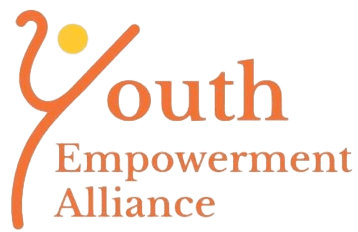Understanding Substance Abuse: A Youth-Centric Approach

Posted on January 12, 2024
Substance abuse is a complex and pressing issue that affects individuals and communities across the United States and beyond. While it impacts people of all ages, it's crucial to adopt a youth-centric approach to address this problem effectively. In this comprehensive guide, we'll explore the key aspects of substance abuse and how taking a youth-centric perspective can make a significant difference.
The Prevalence of Substance Abuse Among Youth
Substance abuse among young people is a growing concern in today's society. The statistics are alarming, with a significant number of adolescents experimenting with or regularly using drugs and alcohol. Understanding the extent of the issue is the first step in combating it.
Why Do Youth Turn to Substance Abuse?
Teenagers may turn to substance abuse for various reasons, including:
- Peer Pressure: Adolescents are highly influenced by their peers. The desire to fit in or be part of a social group can lead them to experiment with substances.
- Curiosity: Teens are naturally curious, and some may try drugs or alcohol out of sheer curiosity about their effects.
- Stress and Coping Mechanisms: The challenges of adolescence, such as academic pressures or family issues, can drive some young people to turn to substances as a way to cope with stress.
- Mental Health: Undiagnosed or untreated mental health issues can contribute to substance abuse among teenagers as they seek relief from their emotional struggles.
The Importance of a Youth-Centric Approach
Addressing substance abuse among youth requires a specific focus on their unique needs and challenges. A youth-centric approach takes into account the following key elements:
1. Education and Awareness
One of the most effective ways to combat substance abuse among young people is through education and awareness campaigns. These initiatives should provide accurate information about the risks associated with drug and alcohol use. Educating youth about the potential consequences can empower them to make informed decisions.
2. Early Intervention
Identifying signs of substance abuse early is critical. Schools, parents, and communities should be vigilant and ready to intervene when necessary. Implementing support systems and counseling services within schools can make a significant difference in helping at-risk youth.
3. Access to Treatment
For those already struggling with substance abuse, access to appropriate treatment is paramount. Youth-centric treatment programs should be tailored to the specific needs of adolescents, addressing not only the addiction but also any underlying mental health issues.
4. Peer Support
Peer support groups can be highly effective in helping young people recover from substance abuse. Adolescents often relate better to their peers and can provide valuable insights and encouragement during the recovery process.
5. Family Involvement
Involving families in the treatment and recovery process is essential. Parents and guardians can play a vital role in providing emotional support and helping their children navigate the challenges of recovery.
Prevention Strategies for Youth
Preventing substance abuse among young people is a top priority. Here are some strategies that can be implemented to reduce the risk:
1. Open and Honest Communication
Encourage open and honest communication between parents, caregivers, and teenagers. Create a safe space where young people feel comfortable discussing their concerns and fears.
2. Healthy Coping Mechanisms
Teach adolescents healthy coping mechanisms for dealing with stress and challenging emotions. Encourage physical activity, creative outlets, and relaxation techniques as alternatives to substance use.
3. School-Based Programs
Implement school-based programs that focus on substance abuse prevention. These programs can educate students about the dangers of substance abuse and provide resources for those in need.
4. Community Involvement
Engage the community in substance abuse prevention efforts. This can include organizing events, workshops, and support groups that address the issue from a local perspective.
5. Access to Counseling
Ensure that young people have access to counseling services, both in school and in the community. Counseling can provide valuable support for those struggling with substance abuse and related mental health issues.
If you are a parent, educator, or concerned individual interested in our substance abuse prevention and rehabilitation programs, reach out to us. The Youth Empowerment Alliance is committed to making a difference in the lives of youth facing substance abuse challenges. Contact us at (301) 990-1150 or via email at [email protected]. Together, let's create a brighter and substance-free future for our youth.
Empowerment starts with understanding. Break the chains of substance abuse, empower a generation.
